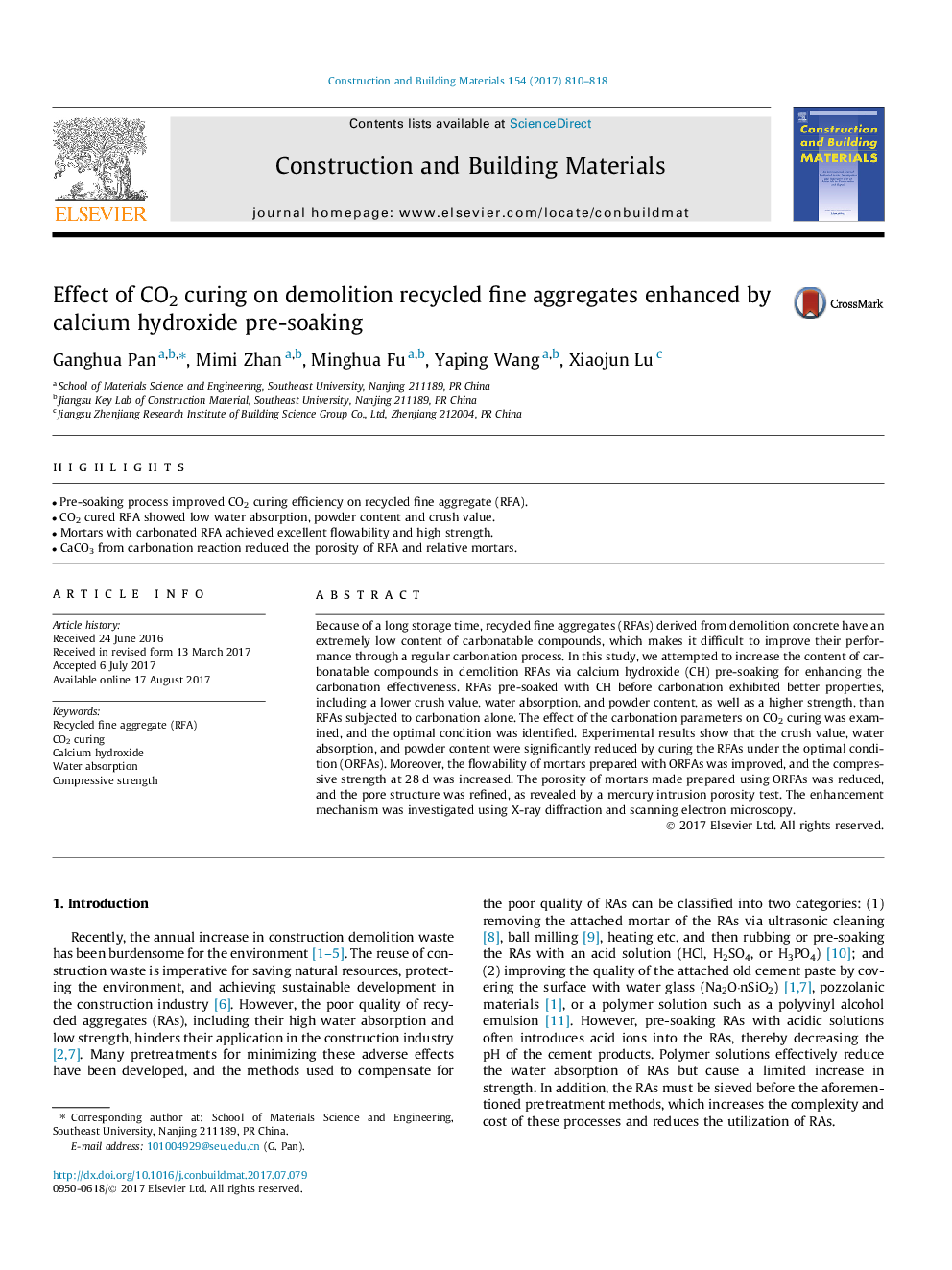| Article ID | Journal | Published Year | Pages | File Type |
|---|---|---|---|---|
| 6480214 | Construction and Building Materials | 2017 | 9 Pages |
â¢Pre-soaking process improved CO2 curing efficiency on recycled fine aggregate (RFA).â¢CO2 cured RFA showed low water absorption, powder content and crush value.â¢Mortars with carbonated RFA achieved excellent flowability and high strength.â¢CaCO3 from carbonation reaction reduced the porosity of RFA and relative mortars.
Because of a long storage time, recycled fine aggregates (RFAs) derived from demolition concrete have an extremely low content of carbonatable compounds, which makes it difficult to improve their performance through a regular carbonation process. In this study, we attempted to increase the content of carbonatable compounds in demolition RFAs via calcium hydroxide (CH) pre-soaking for enhancing the carbonation effectiveness. RFAs pre-soaked with CH before carbonation exhibited better properties, including a lower crush value, water absorption, and powder content, as well as a higher strength, than RFAs subjected to carbonation alone. The effect of the carbonation parameters on CO2 curing was examined, and the optimal condition was identified. Experimental results show that the crush value, water absorption, and powder content were significantly reduced by curing the RFAs under the optimal condition (ORFAs). Moreover, the flowability of mortars prepared with ORFAs was improved, and the compressive strength at 28Â d was increased. The porosity of mortars made prepared using ORFAs was reduced, and the pore structure was refined, as revealed by a mercury intrusion porosity test. The enhancement mechanism was investigated using X-ray diffraction and scanning electron microscopy.
